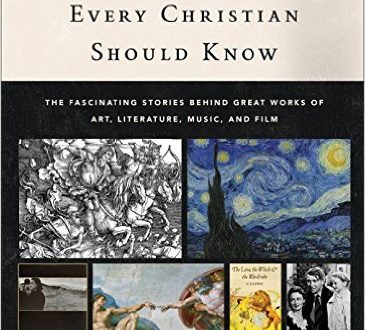Living Wisely within God’s Freedom
Luke writes several "open door" stories in Acts–specifically open prison doors.
In the first story (Acts 5:18ff), the Jewish leaders imprisoned a group of apostles. An angel comes and swings open the doors, and the apostles leave.
In the second one (Acts 12:5ff), King Herod had arrested Peter, and the night before Herod would put Peter on trial, an angel leads Peter out of prison (after which, Peter has another door slammed in his face–the reaction of a surprised fellow believer).
Luke writes several "open door" stories in Acts–specifically open prison doors.
In the first story (Acts 5:18ff), the Jewish leaders imprisoned a group of apostles. An angel comes and swings open the doors, and the apostles leave.
In the second one (Acts 12:5ff), King Herod had arrested Peter, and the night before Herod would put Peter on trial, an angel leads Peter out of prison (after which, Peter has another door slammed in his face–the reaction of a surprised fellow believer).
In the third one (Acts 16:25ff), the magistrates in Philippi, after tearing off the clothes from Paul and Silas, after severerly beating Paul and Silas, threw them into jail. That night, while Paul and Silas pray, an earthquake (what insurance companies like to call an "act of God") tears through the foundations and releases the prison doors and bonds of the prisoners.
Paul and Silas do not leave the prison. They choose to stay and minister.
An open door cannot dictate wise living. (Nor can a closed door, for that matter.) In Part Two of our wisdom series, we saw how we can know God’s will for all believers. But how do we know his personal will for us?
I propose that if God has a personal will for individual believers, we cannot know it. We do not need to find it in order to make good, biblical decisions. Rather, within God’s will for all believers (e.g. making disciples, loving God with all our heart, soul, and mind, loving our neighbor as ourselves, manifesting the fruit of the Spirit), we have freedom in our choices.
God gave Peter the vision that demonstrated God’s desire for the gospel to be spread not just among the Jews but also among the Gentiles, and because of Peter’s ministry, the Holy Spirit first came to the Gentiles (Acts 10). Yet, Paul, not Peter, made his ministry about the Gentiles while Peter in general ministered to Jews. Why? Because God gave them freedom.
God does not have a specific workplace, church, or geographic location in mind for us. We can send our children to private or public schools, or we can homeschool them and still please God with all three options. He gives us freedom to choose these things as long as we seek to obey him and serve his kingdom through these choices. And he will use us no matter where we are or what we decide.
To some, this idea lifts the weight from their shoulders–no longer do they need to search for God’s specific, personal will, afraid that every decision may be outside this will and may lead to a life that doesn’t glorify or serve him in the way he expects. For others, this idea adds stress because it brings the onus of the decision on the individual rather than being able to know that this action and its consequences are God’s will.
But God does not leave us alone as we make decisions. He gives us wisdom literature (such as Job, Psalms, Proverbs, Ecclesiastes, and James), the Holy Spirit, common sense (or the ability to reason), and a community of believers, all of which we will be exploring in the upcoming weeks.
Wisdom Series:
Part One: Want Fries with That?
Part Two: Knowing God’s Will



2 Comments
Terri Moore
I am loving this series!
I am loving this series! Thanks Heather!
Sarah
I wish i could think of
I wish i could think of something intelligent to say in response to this, but my heart just keeps repeating “Thank you!” Not so much for me, I don’t think, but because someone needs to say these things and you are. So thank you, thank you, thank you.